Everyday people have helped others cope with and combat the coronavirus over the past year. As we reflect on the anniversary of the pandemic, let’s also remember them.
The 12 months since the COVID-19 pandemic officially began on March 11, 2020 have been full of grim milestones. They have changed so much for us and taken so much from us.
In a year, a hug went from a warm greeting to a health hazard. We were forced to separate from friends and family. Some people worked on the front lines, some worked from home, others couldn’t work at all. And although we’ve followed the case counts and curves that explain the pandemic’s progression, its toll is unquantifiable. Those we’ve lost are irreplaceable.
But as we mark the one-year anniversary of the COVID-19 pandemic, we can also acknowledge the people who have helped us through it:
Jan. 11: Chinese media report the first death from the novel coronavirus.
Jan. 27: GlobalGiving launches its Coronavirus Relief Fund.
Feb. 18: Incredible people from 38 countries recognize the challenges the pandemic presents—565 come together to give $195,000 for community-led response efforts around the globe through the Coronavirus Relief Fund.
March 9: With schools and children’s centers in cities like Daegu, South Korea closed to curb the spread of the virus, kids who rely on them for meals are going hungry. A-PAD Korea enlists restaurants to prepare warm lunches for 200 of those kids. “Almost [all] local restaurants were closed because of COVID-19,” Program Coordinator Jongwon says. “We selected a few local restaurants near children’s centers to boost the local economy.”
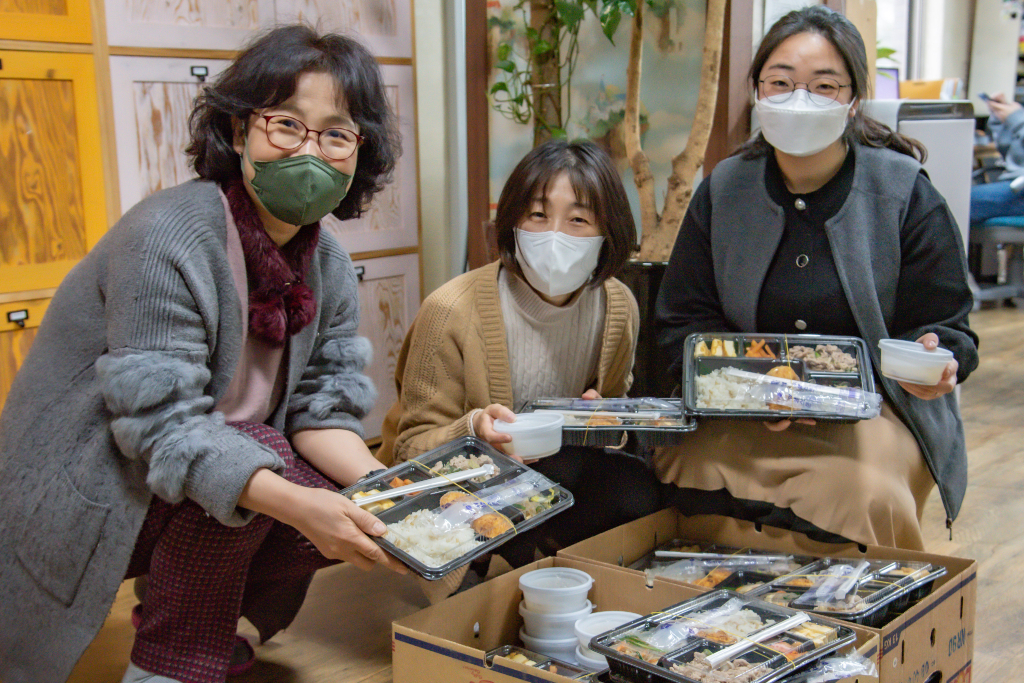
March 11: The World Health Organization declares a pandemic.
March 22: Kimberley says she’s “lucky to be retired, still healthy, and able to help those less fortunate than us,” so she gives to the Coronavirus Relief Fund.
April 4: The World Health Organization confirms more than 1 million cases of COVID-19 worldwide.
April 6: Aksi Cepat Tanggap (ACT Foundation) gets support from the GlobalGiving community to provide meals for workers like Anton, a motorcycle taxi driver who lost wages when Indonesian cities locked down to curb the spread of the virus.
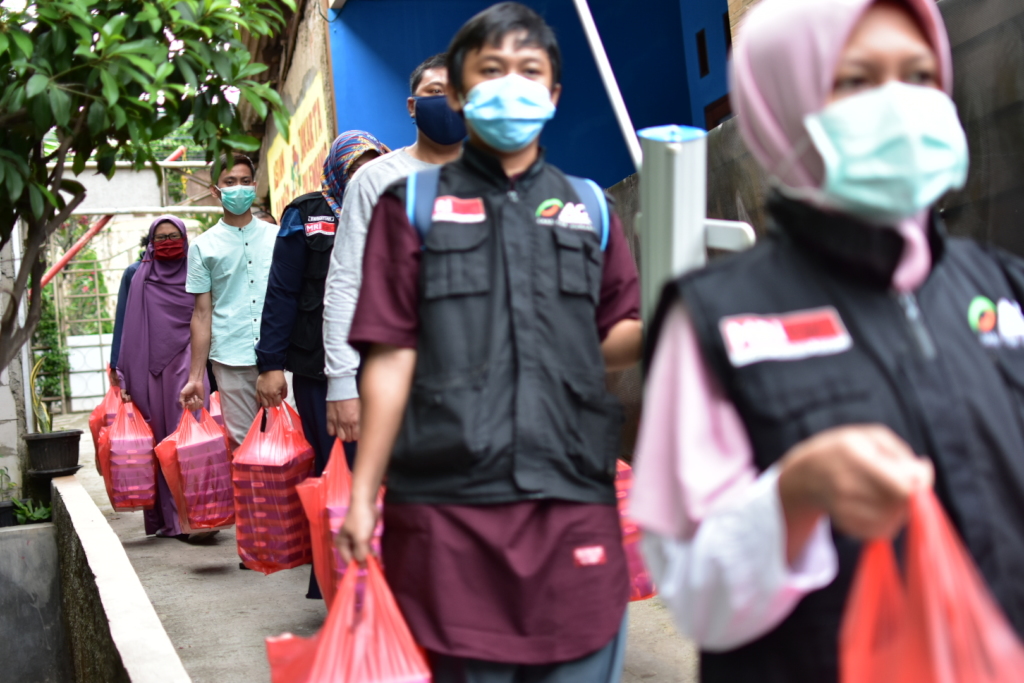
April 9: “This is really unprecedented compared to anything I’ve ever seen. Our healthcare systems are overloaded and overburdened. The staff [are] struggling with being able to meet the needs of the patient,” International Medical Corps’ New York City COVID-19 Team Lead, Susan, tells NPR.
In the United States, International Medical Corps partnered with GlobalGiving and more than 20 hospitals to address the greatest unmet medical needs in cities including Los Angeles, New York City, Chicago, and Detroit.
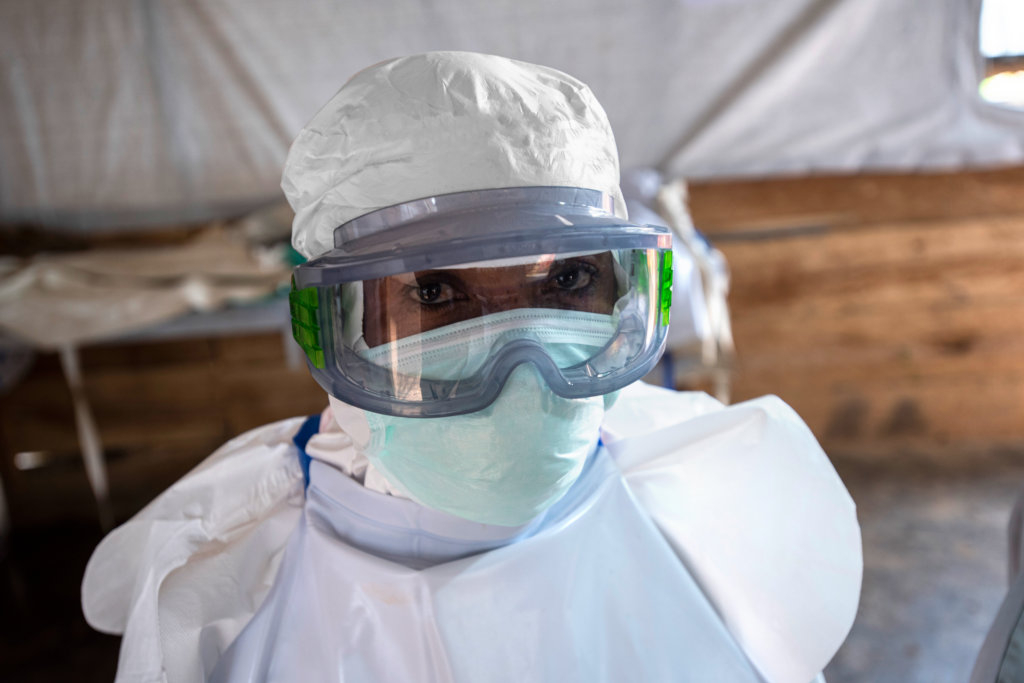
May 29: In a single day, support for GlobalGiving’s Coronavirus Relief Fund reaches $1.1 million.
June 1: The Global Fund for Women shines a light on how COVID-19 is causing a surge in domestic and sexual violence and keeps supporting gender justice organizations that respond to issues of health and violence in their communities.
July 27: Seeding Sovereignty continues their work to improve food access and strengthen Indigenous communities in the US, and the Coronavirus Relief Fund fuels their pandemic response efforts to distribute food, hand sanitizer, and other necessities.
Give hope to people who are still in need on the one-year anniversary of the COVID-19 pandemic.
Aug. 4: In Lebanon, the Beirut port explosions compound the spread of COVID-19, an economic crisis, and daily challenges of refugees who make up more than 21% of the country’s population. The Union of Relief and Development Associations responds with emergency relief, hygiene kits for people who can’t buy supplies like masks given shortages and skyrocketing prices, and awareness sessions on how to prevent the spread of the virus.
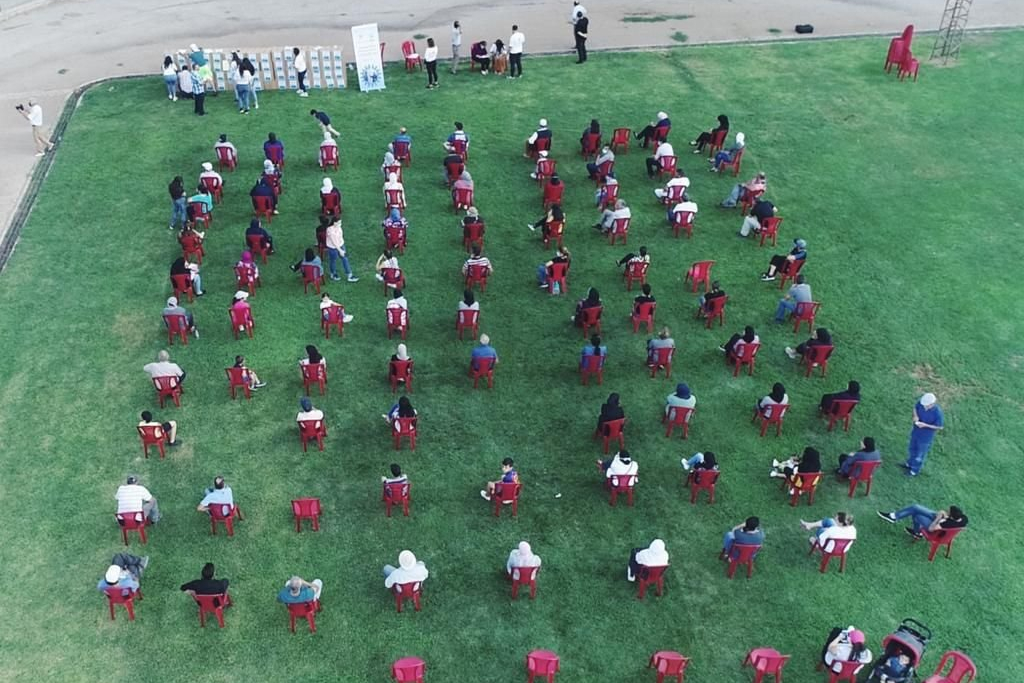
Sep. 20: In honor of his grandmother, a generous person who was always looking out for others, Joseph makes a donation to COVID-19 response efforts. He’s young and doesn’t have a source of income, but he says he still has a lot to give.
Sep. 28: Global COVID-19 deaths surpass 1 million.
Oct. 19: Global COVID-19 cases exceed 40 million.
Nov. 18: After teachers spent seven months helping students learn from home with printed workbooks, lessons via WhatsApp, and individual counseling over the phone, Raising Futures Kenya starts reopening its vocational training centers with social distancing and other COVID-19 safety protocols in place. More than 770,000 young people in Kenya lost their jobs early in the pandemic, adding to the country’s high youth unemployment.
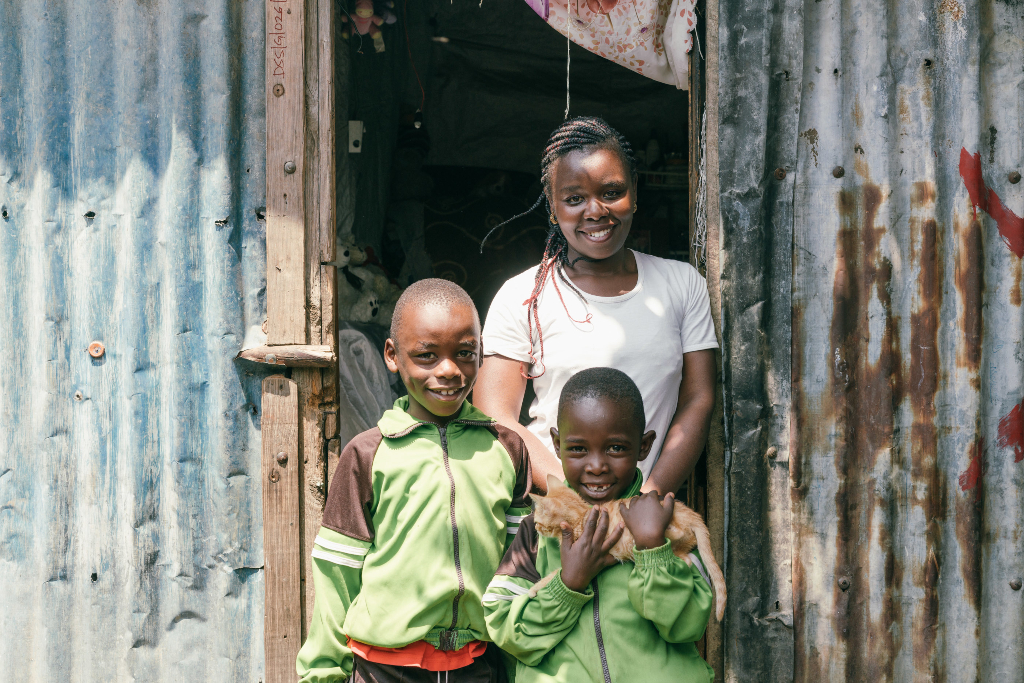
Dec. 2: The United Kingdom becomes the first country to approve the Pfizer-BioNTech vaccine.
Dec. 6: 23,000+ givers from around the globe contribute $11 million to the Coronavirus Relief Fund.
Dec. 11: The US Food and Drug Administration authorizes the Pfizer-BioNTech vaccine for emergency use.
Dec 14: Authorities in the UK discover a new COVID-19 variant.
Dec. 25: Alex and his wife, Olga, get their coronavirus stimulus from the US government, but thinking that they don’t need relief like so many other people do, they donate the exact amount to the Coronavirus Relief Fund.
Give hope to people who are still in need on the one-year anniversary of the COVID-19 pandemic.
Jan. 1: The US surpasses 20 million COVID-19 cases.
Jan. 8: “No one should go through this, and most importantly, no one should go through this alone,” Chinaka says when she decides to give to COVID-19 response efforts. “Any little bit should help.”
Feb. 1: Through the Coronavirus Relief Fund, 89 emergency grants totaling more than $2 million go to nonprofit organizations helping communities in more than 25 countries. Abraham’s Oasis is one. As people in Ethiopia’s Tigray region manage the impacts of COVID-19 and the escalating conflict there, Abraham’s Oasis provides residential care for abandoned children and support for communities in the region.
March 11: On the one-year anniversary of the COVID-19 pandemic, nonprofits around the world continue fighting the virus and supporting their communities. Generous people still give what they can to keep them going, knowing their help will slow the virus’ spread and eventually put the pandemic behind us.
“Looking out for each other as if we are friendly neighbors or family, in my opinion, will spread hope far more effectively than any virus,” one person who anonymously gave to support COVID-19 relief said. As we continue fighting the pandemic and dealing with its toll on our lives, hope is something we all need.
Give hope to people who are still in need on the one-year anniversary of the COVID-19 pandemic.
Featured Photo: Provide Medical Equipment for a Clinic in Haiti! by Care 2 CommunitiesFind exactly what you're looking for in our Learn Library by searching for specific words or phrases related to the content you need.